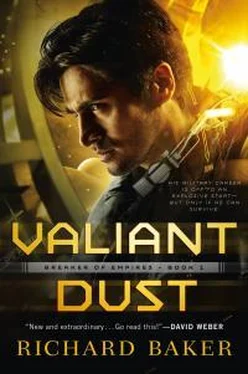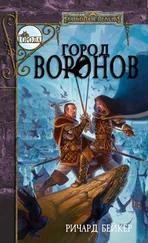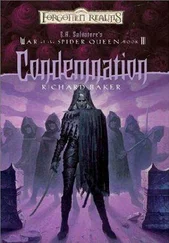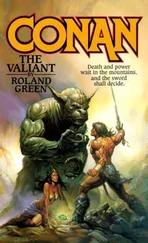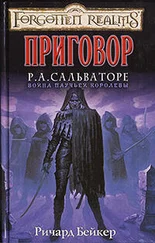Ричард Бейкер - Valiant Dust
Здесь есть возможность читать онлайн «Ричард Бейкер - Valiant Dust» весь текст электронной книги совершенно бесплатно (целиком полную версию без сокращений). В некоторых случаях можно слушать аудио, скачать через торрент в формате fb2 и присутствует краткое содержание. Издательство: Tom Doherty Associates, Жанр: Старинная литература, на английском языке. Описание произведения, (предисловие) а так же отзывы посетителей доступны на портале библиотеки ЛибКат.
- Название:Valiant Dust
- Автор:
- Издательство:Tom Doherty Associates
- Жанр:
- Год:неизвестен
- ISBN:нет данных
- Рейтинг книги:4 / 5. Голосов: 1
-
Избранное:Добавить в избранное
- Отзывы:
-
Ваша оценка:
- 80
- 1
- 2
- 3
- 4
- 5
Valiant Dust: краткое содержание, описание и аннотация
Предлагаем к чтению аннотацию, описание, краткое содержание или предисловие (зависит от того, что написал сам автор книги «Valiant Dust»). Если вы не нашли необходимую информацию о книге — напишите в комментариях, мы постараемся отыскать её.
Valiant Dust — читать онлайн бесплатно полную книгу (весь текст) целиком
Ниже представлен текст книги, разбитый по страницам. Система сохранения места последней прочитанной страницы, позволяет с удобством читать онлайн бесплатно книгу «Valiant Dust», без необходимости каждый раз заново искать на чём Вы остановились. Поставьте закладку, и сможете в любой момент перейти на страницу, на которой закончили чтение.
Интервал:
Закладка:
“You did?” Sikander had almost forgotten about the missing torpedo over the last few days. “When in the world did you find the time to work on it?”
“I’m not on the watch rotation now, so I’ve been working with Mr. Girard whenever I’m back on the ship,” Larkin replied. “I suppose it gave me something else to think about instead of riots and snipers.”
Sikander could certainly understand the desire to put the troubles down on the surface out of mind for an hour or two. “I’ll be right there,” he said. Stretching his legs and thinking about something different for a while sounded like a good idea to him, too.
He grabbed his cap and headed down to the Gunnery Department office. Larkin and Girard were waiting for him, along with Chief Torpedo Mate Maroth, the senior enlisted man in Larkin’s division. Sikander could see Larkin’s fatigue in the set of her shoulders and rumpled uniform, but her eyes remained bright and alert, and she greeted him with a confident smile. “Mr. North. Thank you for coming down.”
“I’m in need of some good news today, Ms. Larkin.” He joined the others at the table. “What have you found out?”
Larkin picked up the remote controlling the office’s vid display, and brought up an image of the schematics of a Phantom Type 12 torpedo. “You’ll recall that the older Phantom Type 12s were upgrades from the Type 11 with new warheads. The top image is the Type 12-P-2, which was the torpedo that went missing. Later Type 12s were manufactured new. The second image is the Type 12-P-5, which is the torpedo we recovered.”
“They look identical,” Sikander remarked.
“They are—almost,” Larkin said. “A Type 12 is simply a Type 11 fuselage and propulsion system with a new warhead bolted on. It was an easy conversion for fleet-level repair depots, and hundreds of old Phantoms were upgraded to match the new model when it came out. But Mr. Girard discovered a crucial difference here, sir.” Larkin moved a pointer to a specific point in the schematic. “This is a power supply to the flight-control unit. That’s the hardware that converts maneuvering signals from the guidance system into operations such as cutting off the warp generator at the termination of an attack run. The power supply on the old Type 11 was replaced with a newer unit with a bigger capacity for new Type 12 torpedoes, but the older upgrades kept the same power supply.”
“The old power supply wasn’t a problem for the Type 11,” Chief Maroth said. A twenty-year veteran with thinning hair, he spoke with the nasal twang of Hibernia, his home system. “Those were in service before I joined up, and no one had much trouble with them.”
Girard cleared his throat and answered. “That’s true, Chief. The problem is in the interaction between the Type 11 power supply and the Type 12 control unit. Under the right—well, wrong—settings, the new unit draws more power than the old power supply can handle. When that happens, the whole thing resets, and the fault recurs before the reset is complete. Our missing torpedo is probably resetting over and over again while we speak. In a few months the onboard generator will be exhausted, and it will pop out somewhere in interstellar space.”
“So what are the wrong settings?” asked Sikander.
“The ones I used at Aberdeen,” said Larkin. She changed the vid image to show a control console’s display; Sikander recognized the icons and menus for the torpedo officer’s station on the bridge. “When the standard attack program is selected and the seeker head is set in continuous homing, it generates a power demand that triggers the reset.”
Sikander glanced over to Chief Maroth. “What do you make of it, Chief?”
“That’s a pretty normal attack program, Mr. North. At torpedo school, they tell you to choose those settings for practice shots because they might give you a slightly better score on the range. I’d bet that half the torpedoes in the fleet are probably set to run the same way.”
“And God knows that every ship in the Navy is fanatical about range scores.” Sikander nodded slowly. “So what does this mean for our war shots?”
“They use that same power supply and flight-control unit, and some of those were conversions from the old Type 11, too,” said Girard. “This problem isn’t just limited to our practice torpedoes.”
“I was afraid of that,” Sikander said. “Very well, then. We’d better check our torpedo inventory and make sure we know which of our war shots are upgrades and which are new weapons. I’ll recommend to the captain that we put the new ones in the launch tubes on the off chance we might need to use one.”
“We already checked, sir,” said Larkin. “We have only two of the 12-J series 5 on board. The rest of our torpedoes are the older series 2, so they might fault out. I’m sending you the list of weapons we ought to replace in the torpedo tubes.”
“We have only two good torpedoes on board?” Sikander winced. He didn’t look forward to explaining that to the captain and the XO.
“If we had to, we could probably use the questionable torps with a different attack program, sir. But we’d need to run a lot of simulations to make sure the power-supply fault wouldn’t crop up.”
“Better that we know that now, I suppose.” Sikander took one last look at the vid display, then turned back to his junior officers. He’d known that Michael Girard was sharp as a tack in technical issues, and the landing operations over the last few days had showed him a different side of Angela Larkin. “Excellent work, both of you,” he said. “Clear your afternoons—I want you to present your findings to the captain as soon as possible.”
Girard grimaced. “The captain, sir?” Like many ensigns fresh out of the Academy, he was more than a little intimidated by the idea of speaking with his commanding officer, even someone as reasonable and even-tempered as Elise Markham.
“The captain,” Sikander affirmed. “Far be it from me to take credit for your work, Mr. Girard.”
Larkin’s response was more guarded, but she gave him a small nod, and allowed herself another smile. “Thank you, sir,” she said.
Later that afternoon, after the two junior officers had made their report to Markham and Chatburn, Sikander spent an hour watching the Torpedo Division carry out the painstaking work of unloading two of the cruiser’s torpedo tubes and replacing the potentially defective weapons with Phantoms of newer manufacture. Each weighed over two thousand kilos, and the torpedo room was a crowded workspace; changing weapons required no small amount of care. But the exchange went well, and by dinnertime Sikander was able to report to Markham that at least two of the ship’s torpedoes were fully ready again.
He returned to his stateroom, intending to turn in early and catch a few hours’ sleep before he was inevitably awakened by another deployment of the ship’s shore party or further deterioration of the situation on the ground. He found Darvesh there, folding freshly laundered shirts and arranging the shoes in his closet. “Good evening, sir,” said Darvesh.
“Good evening,” Sikander replied. Personally, he saw little reason to waste time on the tiny details of military grooming during ordinary shipboard routine, but Darvesh refused to allow him to be seen with anything less than crisply pressed clothing and shoes shined to a mirror polish. He’d learned long ago to simply allow Darvesh to have his way. He sat down on the edge of his bed, but before he could even kick off his boots, his personal comm beeped.
Wondering who would call him directly, he keyed it and answered. “Lieutenant North.”
“Hello, Sikander. This is Ranya el-Nasir. I just found your message, and I wanted to thank you for your concern.”
Читать дальшеИнтервал:
Закладка:
Похожие книги на «Valiant Dust»
Представляем Вашему вниманию похожие книги на «Valiant Dust» списком для выбора. Мы отобрали схожую по названию и смыслу литературу в надежде предоставить читателям больше вариантов отыскать новые, интересные, ещё непрочитанные произведения.
Обсуждение, отзывы о книге «Valiant Dust» и просто собственные мнения читателей. Оставьте ваши комментарии, напишите, что Вы думаете о произведении, его смысле или главных героях. Укажите что конкретно понравилось, а что нет, и почему Вы так считаете.
